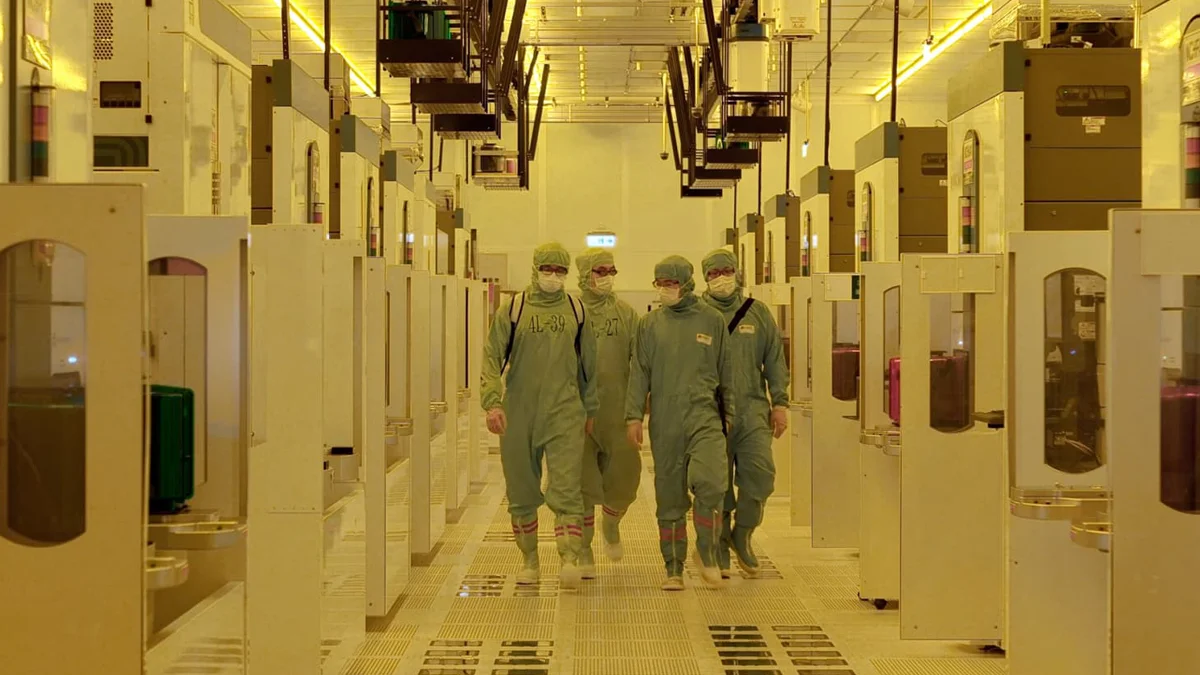Necessary Always Active
Necessary cookies are required to enable the basic features of this site, such as providing secure log-in or adjusting your consent preferences. These cookies do not store any personally identifiable data.
|
||||||
|
||||||
|
||||||
|

Taiwan Semiconductor Manufacturing Company (TSMC) revealed on Tuesday that it had discovered some trade secret leaks through “Unauthorized activities”, CNBC reported. TSMC’s trade secret leak discovery has prompted it to launch an immediate investigation while implementing strict disciplinary action against the personnel who were involved.
The company said, “TSMC maintains a zero-tolerance policy toward any actions that compromise the protection of trade secrets or harm the company’s interests. Such violations are dealt with strictly and pursued to the fullest extent of the law. We remain committed to safeguarding our core competitiveness and the shared interests of all our employees.”
The company announced that its internal security teams detected suspicious activities that could indicate unauthorized access to sensitive manufacturing processes and proprietary technologies. TSMC officials are working closely with cybersecurity experts and law enforcement agencies to determine the full scope of the potential breach.
The semiconductor giant has not disclosed specific details about what information may have been compromised or how the potential leak was discovered. However, company representatives confirmed that they are taking the matter extremely seriously, given the strategic importance of their manufacturing technologies.
TSMC’s leadership emphasized that protecting intellectual property and trade secrets is fundamental to maintaining its competitive advantage in the global semiconductor market. The company has invested decades and billions of dollars in developing advanced manufacturing processes that are crucial to its success.
TSMC’s data leak investigation comes at a time when semiconductor companies face increasing cybersecurity threats from various sources. The chip industry has become a primary target for industrial espionage due to the strategic importance of advanced manufacturing technologies.
Cybersecurity experts note that semiconductor companies possess some of the most valuable intellectual property in the technology sector. Manufacturing processes, chip designs, and customer information represent billions of dollars in research and development investments that competitors and foreign entities actively seek to obtain.
The data breach highlights the ongoing challenges that technology companies face in protecting their most sensitive information. Even companies with sophisticated security systems can become targets of advanced persistent threats and insider risks.
Following the discovery of TSMC’s security leak, the company has implemented additional protective measures throughout its global operations. These enhanced protocols include stricter access controls, improved monitoring systems, and comprehensive security audits of all critical systems.
TSMC has also initiated a company-wide review of its information security practices to identify any vulnerabilities that could be exploited by unauthorized parties. The review covers both digital systems and physical security measures at manufacturing facilities.
The chipmaker is working with leading cybersecurity firms to conduct forensic analysis and strengthen its defenses against future attacks. This includes updating security software, implementing new monitoring tools, and providing additional training to employees about security best practices.
TSMC’s Intellectual Property Theft concerns extend beyond just one company, potentially affecting the entire semiconductor supply chain. TSMC manufactures chips for major technology companies, including Apple, Nvidia, and AMD, making any security breach a matter of global concern.
Taiwan’s chipmaker IP breach investigation reflects broader cybersecurity challenges facing Taiwan’s technology sector. As home to many of the world’s most advanced semiconductor companies, Taiwan has become a primary target for industrial espionage and cyberattacks.
The incident underscores the need for continued investment in cybersecurity infrastructure and international cooperation to protect critical technology assets from unauthorized access and theft.